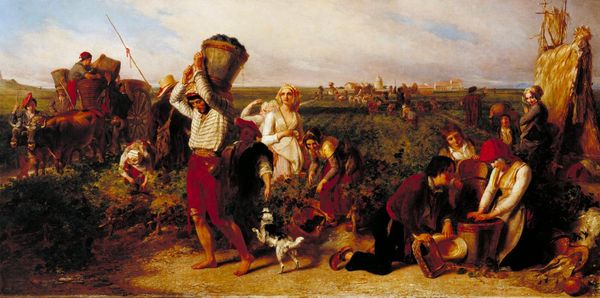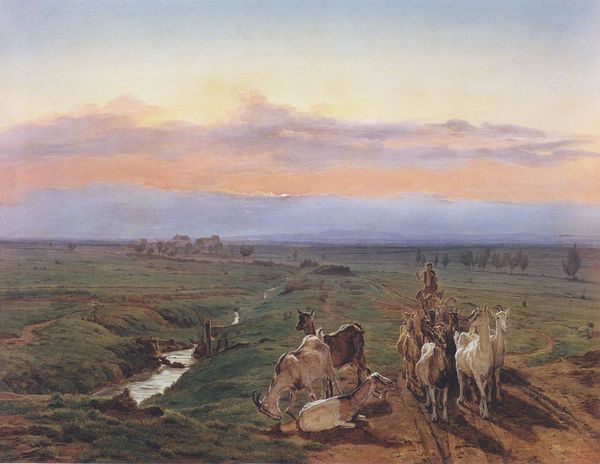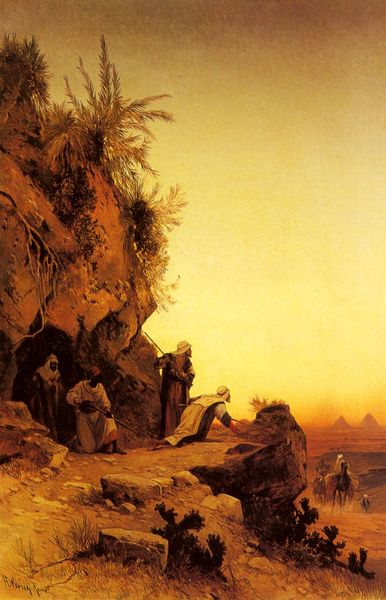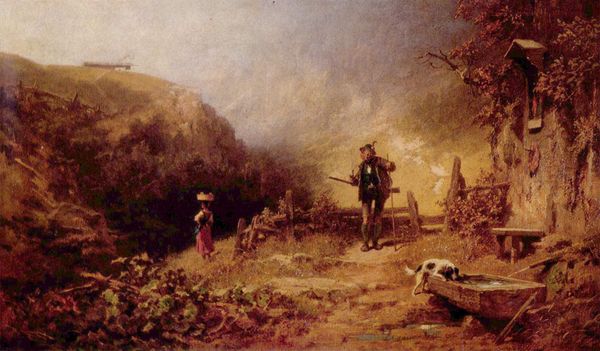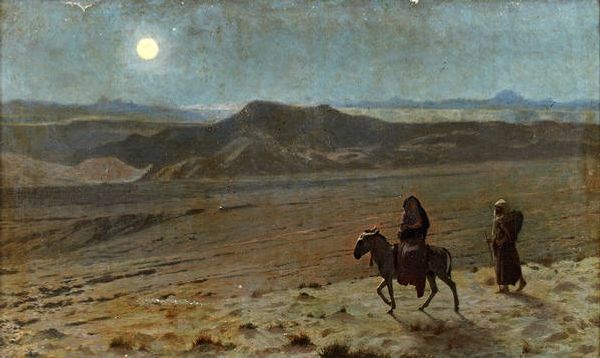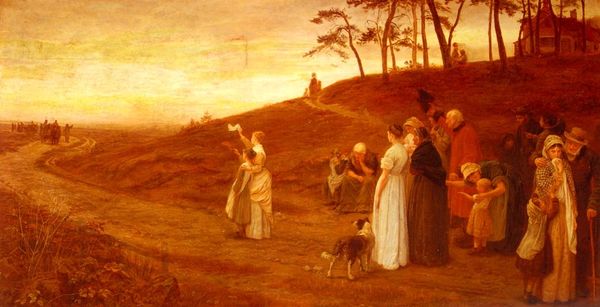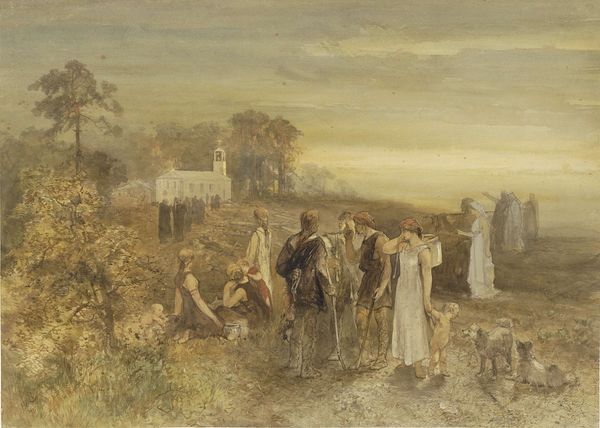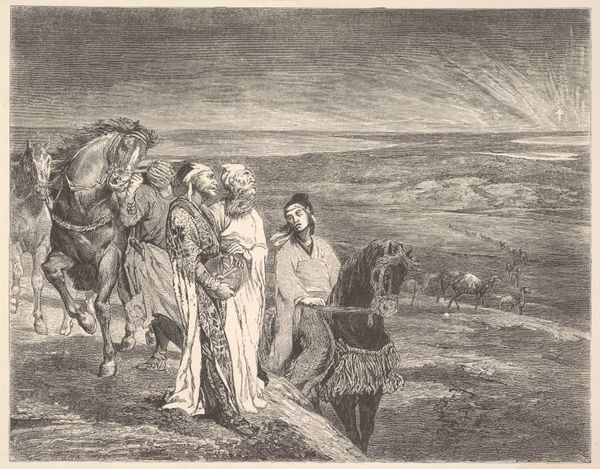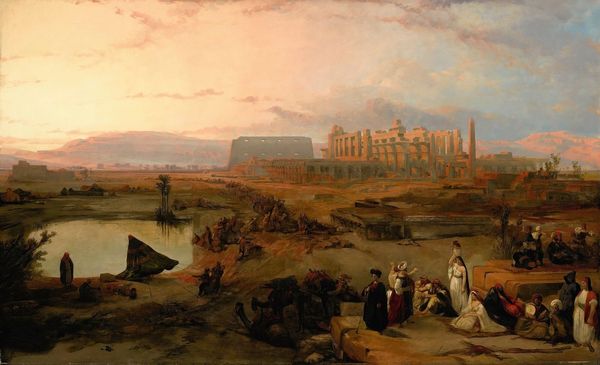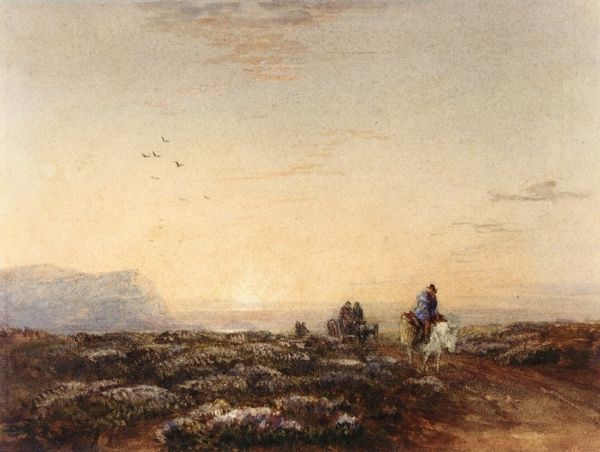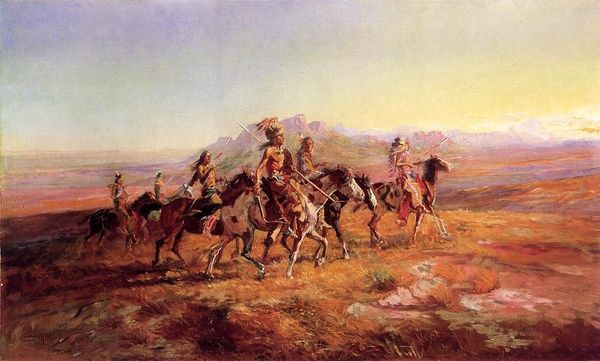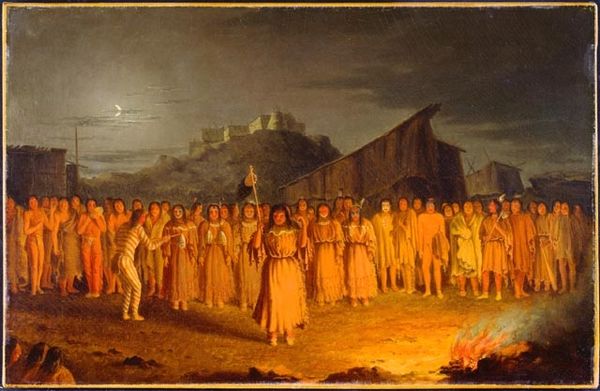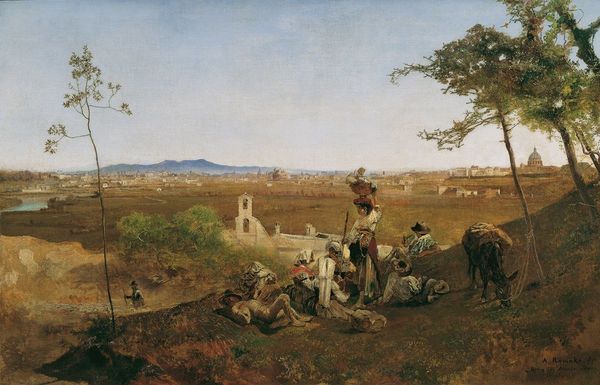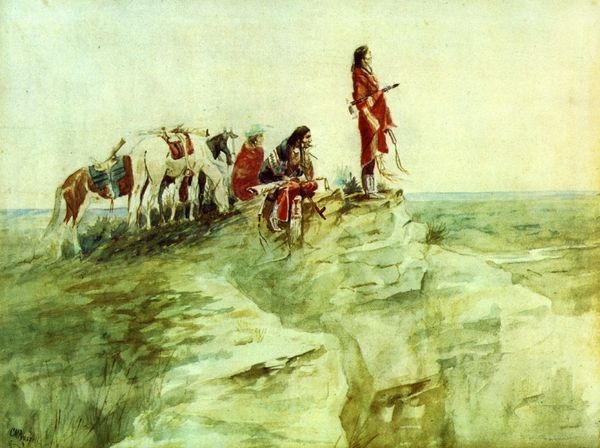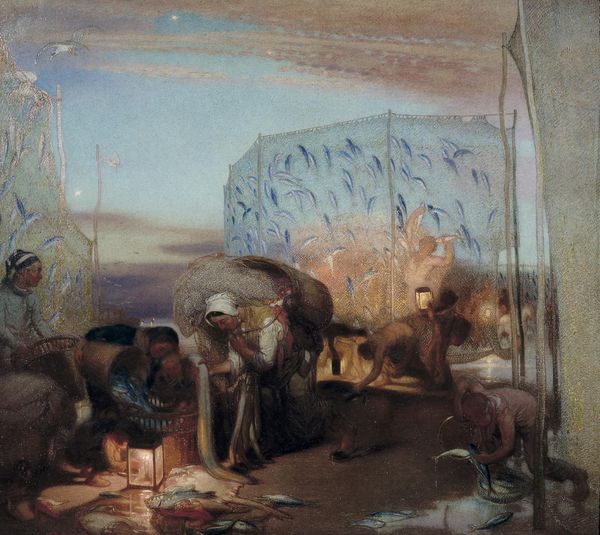
painting, oil-paint
portrait
painting
oil-paint
landscape
figuration
oil painting
road
romanticism
genre-painting
Dimensions: 40 x 50 cm
Copyright: Public domain
Curator: Before us is Carl Spitzweg’s “Englishman in the Campagna,” completed in 1845. An oil painting, it offers a delightful tableau of leisure and cultural tourism. What are your first impressions? Editor: Immediately, there's a theatrical feel, almost a stage set quality, accentuated by the sharp diagonal and muted but varied tones. It seems less like observation and more like composition. The spatial arrangement directs my focus. Curator: The ‘Englishman,’ readily identifiable by his attire and posture, occupies a pivotal position. His commanding gesture echoes a colonial mindset, ‘possessing’ the landscape through sight. There’s a symbolic weight in this performance of viewing. Editor: But it’s precisely this overt ‘posing’ that undermines any sense of authenticity. Observe how the landscape serves as a mere backdrop; a picturesque flatness lacking real depth. It seems a self-conscious construction. Curator: I agree the ruined architecture carries echoes of Romanticism's fascination with decay. The landscape, then, embodies the passage of time, a meditation on civilizations risen and fallen, underscoring human transience. The 'Englishman' confronts his place within history itself. Editor: Exactly, this theatrical framing pushes my attention from depth to surface. And look at that horizon line bisecting the composition—the light emphasizes the flatness instead of recession into atmospheric depth. It pulls focus onto surface artifice rather than illusion. Curator: It suggests an awareness, on Spitzweg’s part, that viewing is always mediated. The figures, posed yet distanced, become a lens through which we reflect on our relationship to both art and place, revealing how cultural power structures influence perception. Editor: So, the figures function almost as signifiers, coded by gesture, posture, and costume, reducing depth into something more representational. Rather than opening into some deeper, existential perspective it confines to an essentially staged narrative? Curator: Precisely. In staging a romantic tourist visit, Spitzweg subtly questions what it is to look at another place, another time, to collect those impressions as a sort of...conquest, if you will. Editor: I find this dissection has allowed me to understand this oil piece less like an idyllic representation of reality and more of an examination of art and representation itself. Curator: It also becomes clear that, rather than the landscape ‘impressing’ itself upon the viewer, the viewer imposes a carefully curated narrative on the scene. Editor: A perfect example of self-reflexivity about representation that opens a rich pathway of intellectual questions that have shifted during its history.
Comments
No comments
Be the first to comment and join the conversation on the ultimate creative platform.
